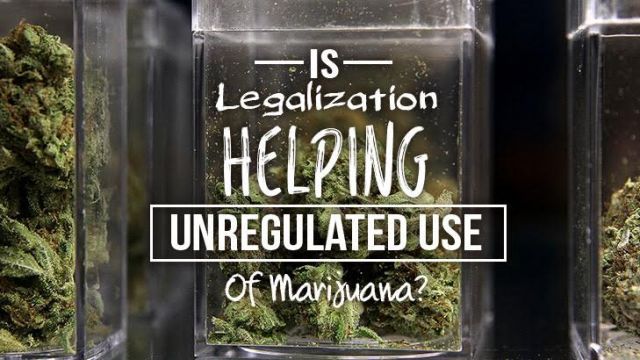
We all know that youth is a time of experimentation, but youthful rebellion shouldn’t result in permanent damage to a child’s mental and physical health. If marijuana legalization leads to easier access, opponents argue, increased use among the young could cause serious damage.
In the past this argument has led to a slew of sub-arguments. Are there really health risks? Are they permanent? Is marijuana use a cause or symptom of delinquent teen behavior? Is it neither? Well, we can all stop obsessing over the details.
With the drug now legalized in several states, social researchers are finally able to test the “save the children” argument. They have found that Colorado kids are not smoking more pot despite legalization, which renders all the sub-arguments moot.
A large study conducted amongst Colorado middle and high school kids found that recreational marijuana use has gone down since legalization. Twenty-one percent of the 17,000-respondent sample reported using marijuana in 2015, compared to 25 percent in 2009. Recreational marijuana use became legal in 2013. Correlation doesn’t imply causation, but this is certainly good news for young people and marijuana proponents alike.
This new data contradicts a national report released in January 2016. That study found a 20 percent increase in the number of Colorado adolescent that reported using the drug. This placed the state’s youth first in the nation in terms of marijuana use. The findings were based on the National Survey on Drug Use and Health, which includes a sample size of only 400 Colorado teenagers. The new study, with its much larger number of respondents, is likely to be more accurate.
When viewed nationally instead of singling out particular states, the National Survey on Drug Use and Health also shows a decrease in marijuana use among young people. Alongside this decline of use, researchers have found that disorders affiliated with the drug are less prevalent.
Many of these disorders — trouble at school, impaired memory, reckless behavior — are general enough that blaming them on marijuana use alone is a stretch. What is certain, is that legalization is not harming our kids. According to the study’s author: “We don’t know how legalization is affecting young marijuana users, but it could be that many kids with behavioral problems are more likely to get treatment earlier in childhood, making them less likely to turn to pot during adolescence. But whatever is happening with these behavioral issues, it seems to be outweighing any effects of marijuana decriminalization.”
Opponents of legalization thought that a change to the laws would increase teen access to the drug. The truth is, marijuana was already accessible. Young people have been self-reporting that marijuana is prevalent and easy to obtain for the last 20 years. What is changing more swiftly than usage or accessibility, is young people’s attitudes towards marijuana.
The Monitoring the Future survey tracks usage and attitudes. They report steady marijuana use among eighth, tenth and twelfth graders despite significantly shifting attitudes towards the drug. In 1991, 78.6 percent of those surveyed believed that occasional marijuana use was harmful. Today that number has shrunk to only 31.9 percent. Attitudes towards regularly smoking marijuana have also shifted. Seventy percent of respondents classify regular use as harmful today, compared to 90 percent in 1991.
Unfortunately, data specific to the other states that have legalized marijuana is not readily available. Washington state has not published a Healthy Youth Survey since 2012, the same year that marijuana was legalized. Alaska and Oregon legalized recreational marijuana too recently for results to be significant.
We do have additional information on the impact of medical marijuana legalization. A 2013 study using data collected from Montana, Rhode Island, Michigan and Delaware found results similar to those found in Colorado. Data from Monitoring the Future also confirms these results.
The kids are alright.
—Erin Wildermuth

